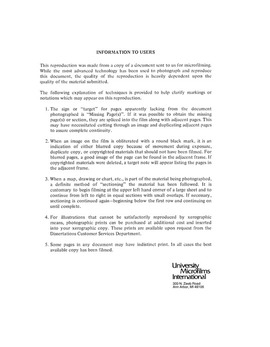| dc.contributor.author | Wayne, William Robert, | en_US |
| dc.date.accessioned | 2013-08-16T12:29:15Z | |
| dc.date.available | 2013-08-16T12:29:15Z | |
| dc.date.issued | 1984 | en_US |
| dc.identifier.uri | https://hdl.handle.net/11244/5277 | |
| dc.description.abstract | This study examined the relationship between the "belief in a just world" and preference for "meaning" or attributional counseling among "victims" in an analogue situation. It was hypothesized that those who believe the world to be just would prefer a counseling approach which enabled them to place their "accident" into a meaningful framework as an aid to cognitive adaptation. It was further hypothesized that if counseling preference was measured in a relatively disguised way there would be higher satisfaction with "meaning" counseling. Forty undergraduate student volunteers, selected on the basis of their Just World Scale scores, were asked to try to identify with the main character in an account of an accident. They were then given a counseling treatment which emphasized either the "meaning" or the "randomness" of their situation. Satisfaction with counseling was then assessed using a questionnaire addressing satisfaction with counseling and a semantic differential. Analyses of variance procedures failed to confirm the hypothesized preferences. However, correlational data revealed interesting relationships among some of the variables. | en_US |
| dc.format.extent | vi, 68 leaves ; | en_US |
| dc.subject | Psychology, General. | en_US |
| dc.title | Response of victims to counselors with differing views of a just world : | en_US |
| dc.type | Thesis | en_US |
| dc.thesis.degree | Ph.D. | en_US |
| dc.thesis.degreeDiscipline | Department of Psychology | en_US |
| dc.note | Source: Dissertation Abstracts International, Volume: 45-07, Section: B, page: 2300. | en_US |
| ou.identifier | (UMI)AAI8424001 | en_US |
| ou.group | College of Arts and Sciences::Department of Psychology | |
